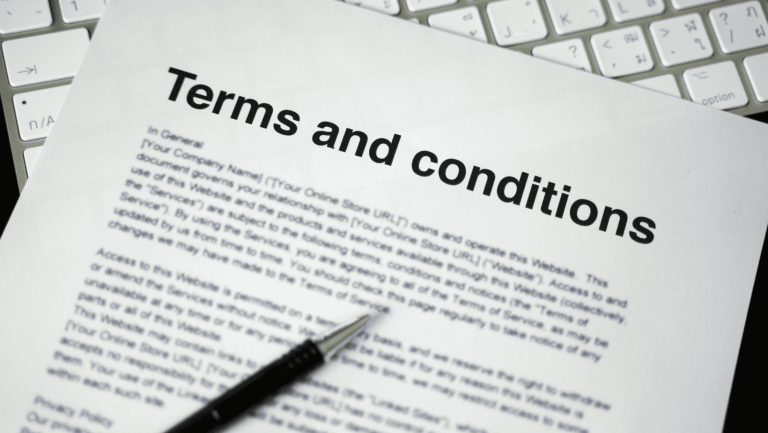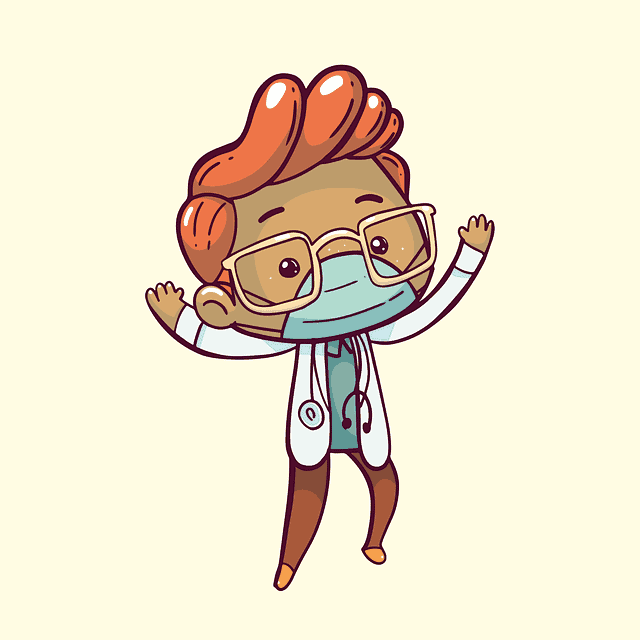Medical Board Defense
Becoming a doctor isn’t a walk in the park. Imagine years of hitting the books in med school, grinding through residency, and maybe even extra time in fellowships. All this before you even say “Hi” to your first patient. Talk about a marathon.
Now, picture trying to remember everything you’ve learned while ensuring you’re doing everything correctly. It’s like juggling six balls in the air — tough but not impossible. Nobody’s perfect, and even the best docs make mistakes. What really matters is knowing what to do when things don’t go as planned.
Most times, fixing these slip-ups is straightforward. But every now and then, you hit a snag that’s a bit trickier. That’s when it’s crucial to have someone in your corner, ready to step up and shield you and that hard-earned medical license you’ve spent ages working for.
Why Might You Need Medical Board Defense
Let’s dive into why you might need a medical board defense. Picture this: you’re a doctor going about your day, and out of the blue, you get an audit notice or a letter asking for some info. Seems simple, right? But sometimes, these little things can snowball into big issues. Maybe you’re not even the main focus, but you get caught up in someone else’s drama. Before you know it, you’re sitting in the hot seat, maybe just as a witness, but still — it’s a sticky situation.
Now, let’s talk about the biggies that could have you dialing up a defense lawyer faster than you can say “scalpel.” These are the heavy hitters that can shake up your world:
- Ethical Misstep: This is stuff like failing a drug test, getting a DUI, or not keeping up with your continued medical education. These can really throw a wrench in your gears.
- Malpractice Mess-Ups: If someone hits you with malpractice claims, saying you didn’t do your job right and it hurt them, that’s a serious accusation.
- Standard of Care Slip-Ups: This is about whether you’re keeping up with the quality of care expected in your field. Drop the ball here, and it’s trouble.
- Fraud Fiascos: Any charges or convictions related to healthcare fraud? That’s a big red flag waving right in front of the board.
- Criminal Convictions: Even if it has nothing to do with your medical work, a run-in with the law can jeopardize your license.
- Trouble in Other Places: Got legal issues in another state? The board’s going to want to hear about that.
- Probation Pitfalls: If you’re on probation and trip up, that’s like pressing the “trouble” button.
- Money Matters: Not keeping up with certain debts, like court-ordered payments or student loans, can come back to bite you.
- License Suspensions in Your Past: If you’ve had your license suspended before, that’s a red flag to a medical board.
- Disciplinary Drama: Any kind of disciplinary action against you in the medical world? That’s a big deal.
So, why might you need a medical board defense? Simply put, it’s about protecting your career, reputation, and ability to do what you love – helping people. Whether it’s a small mix-up or a major mishap, having the right defense can make all the difference in keeping your license and your livelihood secure.
What is the Role of Medical Boards in Medical License Defense
State medical boards do much more than just keep an eye on who becomes a doctor. They’re like the referees of the medical world. When a doctor steps out of line, doesn’t play by the rules, or needs a tune-up in how they do their job, these boards step in. They can tell physicians to change their ways, hit pause on their practice, or even show them the door by yanking their license.
These boards are always on the lookout. They get the lowdown from patients, other doctors, health pros, and even the government about any doc who might be slipping up. And when they do find something fishy, they’re not shy about taking action. They can call doctors in for a serious talk, put them on probation, take away their license for a while, give them a public telling-off, or even make them pay up.
But it’s not all doom and gloom. Sometimes, if a doctor just needs a bit more know-how, the board might say, “Hey, go learn some more stuff,” instead of going all out with the heavy penalties. They might put their license on hold while the doc hits the books again.
Here’s a pro tip: if you’re a doc and you catch wind that you might be in trouble, don’t wait around. Get yourself a lawyer, pronto. They’re like your backstage pass to navigating this whole board business.
Why Hire an Arkansas Medical Board License Attorney From WH Law
Sure, no lawyer can wave a magic wand and promise everything will be hunky-dory. Every case is its own can of worms. But before you throw in the towel on your professional license, sign up for any program, or spill your guts in a confession, it’s smart to talk to a healthcare professional license attorney. And not just any lawyer — one who knows the ins and outs of healthcare criminal defense and medical license defense of Arkansas law.
The crew at WH Law? They’re like the Swiss Army knife of lawyers in this field. They know their stuff, both in the healthcare crime scene and in defending a professional license. They’re the folks you want in your corner if you’re a healthcare provider in Arkansas facing this kind of heat.
How to Deal with Complaints against a Medical License
Let’s talk about what to do if you’re a physician facing complaints against your professional license.
Here’s the deal: being a doctor nowadays means you’re in the spotlight. Sometimes, stuff hits the fan, and your license — the one you worked your tail off for — could be on the line. If you get wind of a complaint or some kind of disciplinary action brewing, it’s time to call in the pros. You don’t want this thing snowballing into a suspension or, worse, saying goodbye to your license.
So, you get this complaint, and bam! The wheels start turning with the Medical Board. Now, this is where it gets a bit like a maze. Arkansas has its own rules for handling complaints against health professionals, and it’s all about administrative procedures. That’s lawyer talk for “complicated legal stuff.”
You need a medical license defense attorney who’s a whiz at navigating these tricky waters. They know the ins and outs of how to shield your license from getting dinged. Getting them on board ASAP could mean stopping those allegations dead in their tracks.
Complaints can come from anywhere — patients, their families, even the Board itself. And you’ve got to tackle them head-on. The whole process — board hearings, dealing with a judge, the whole shebang – can be overwhelming. But with the right legal team, you’ll have someone in your corner to guide you through.
Remember, timing is everything. Don’t dilly-dally in getting a lawyer once you hear about a complaint. Getting someone who knows their stuff early on could be the lifesaver your medical license needs.
How Losing Your Medical License Starts
Losing your medical license due to violations usually doesn’t start with a dramatic revocation. It often begins with something that seems harmless — maybe an audit or a simple info request. And sometimes, you might just get caught up in someone else’s mess, even if you’re just a witness.
When it comes to suspensions or revocations, you’ve got a shot at challenging them. But you’ve got to move fast. There’s a ticking clock, and once time’s up, you’re out of options. A sharp defense lawyer will be all over it, asking for a hearing to fight for your license and prepping you for the showdown.
The Arkansas Board can take different actions depending on what’s going on. They might just give you a slap on the wrist with a fine or some extra classes, or they could go big, like restricting your license or even taking it away. The key is they’ve got a range of responses, depending on the situation.
And hey, during any investigation, you’ve got rights. You’re innocent until proven otherwise. The Board has to play fair, following rules and ensuring you’re not getting a raw deal. But if there’s a serious immediate threat — think big no-nos like sexual misconduct or substance abuse — they might hit the brakes on your license while they dig deeper.
So, bottom line? If you’re an Arkansas doc facing troubling allegations from the medical board, get a Medical Board license defense attorney who knows the ropes. They’re your best bet in keeping your license and career on track.
Actions the Medical Board Takes
Let’s walk through the process when a doctor in Arkansas gets into hot water with the Arkansas Board of Medicine. This is all about AR Code §17-95-410, which is the rulebook for handling doctor slip-ups.
- First Up — The Look-See (Initial Investigation and Review): A complaint comes in, and the Board’s first job is to figure out if there’s a chance that the rules were broken. If they sniff out something fishy, they’ll whip up a Complaint and Order to get the ball rolling.
- Let’s Make a Deal (Settlement Prior to Formal Charge): If a doc’s staring down the barrel of potential charges, especially tricky stuff like drug or alcohol issues, it’s wise to try and sort things out early. But hold your horses – always chat with your lawyer before shaking hands on any deal.
- The Official Call-Out (Formal Complaint and Order): If the Board thinks there’s a problem, they’ll serve up a formal complaint. This thing lays out all the nitty-gritty details of what the doctor is accused of. It’s supposed to spill all the beans about the case.
- Digging Deeper (Formal Investigation): Now the Board’s gonna want all the dirt – think malpractice paperwork, patient records, the works. They might even chat up witnesses or have them spill the beans under oath.
- The Showdown (Administrative Hearing): The doc gets a heads-up about a hearing, which happens at least 30 days after the complaint lands. This is the doctor’s chance to tell their side of the story, bring evidence, and basically make their case to someone who’ll weigh it all out.
- Board Rules (Hearing Process): The Board isn’t super strict about evidence rules, but they promise to give everything a fair shake. Anything that’s dished out in the hearing has to be sworn testimony.
- The Verdict (Board’s Decision and Appeal): The Board decides what’s what after the hearing. They lay out the facts and their conclusions. But if the doc thinks the Board got it wrong, they can take it up with the courts. Recently, the Arkansas Court of Appeals called out the Board for being a bit sloppy in how they handled a case. Moving forward, the Board’s probably going to be extra careful to dot their i’s and cross their t’s.
So, there you have it. If you’re a physician in Arkansas and find yourself in a pickle with the Arkansas State Medical Board, this is the path you’re looking at. And remember, having a sharp lawyer by your side can make all the difference in navigating these choppy waters.
Types of Disciplinary Action
When the Arkansas State Medical Board raises an eyebrow at a doctor’s conduct, they’ve got a toolbox of disciplinary actions they can whip out. Here’s the rundown of what they might do if they think a doctor’s stepped out of line:
- License Revocation (The Big Goodbye): This is the Board’s version of “You’re outta here!” They can pull the plug on a doctor’s license, meaning no more practicing medicine. It’s the end of the road, doc.
- License Suspension (Time-Out): Think of this as the Board putting a doc in the penalty box. They can bench a doctor’s license for up to a year. It’s like hitting pause on their medical career.
- Probation (On Thin Ice): Here, the Board says, “Alright, you can still practice medicine, but we’re watching you.” They set up some rules and conditions to ensure the doctor stays straight and narrow – for their own good and for the public’s.
- Reprimand (The Stern Warning): This is when the Board sends a doctor a letter saying, “We’re not happy with you.” It’s a formal telling-off that gets stapled to their record. Employers, patients, and just about anyone can peek at this reprimand.
- Fine (Pay Up): Sometimes, the Board hits a doctor where it hurts – their wallet. They can order a doc to cough up some cash as a penalty.
In short, if a doc in Arkansas finds themselves in hot water with the Arkansas State Board, they could be facing anything from a slap on the wrist to a full stop in their medical career. It’s serious business, so playing by the rules is key.
Get Aid From Arkansas Medical Board License Lawyers at WH Law
Ready to stand your ground against medical board challenges? At WH Law, we’re here to ensure you keep doing what you do best — practice medicine — even when legal hurdles pop up. Our experienced medical license defense attorneys are your shield, handling the complexities of your case so you can focus on your patients, not paperwork.
Don’t wait until it’s too late. For a free strategy session, contact us at 870.539.9380 or text 501.888.4357. Let’s start defending your rights and safeguarding your license today. And hey, if you’ve got malpractice insurance, chances are it covers your legal defense expenses. Make the most of this valuable benefit you’ve already paid for.
At WH Law, we don’t just stop at medical board defense. We’re your legal Swiss Army knife – handling everything from appeals, contract issues, business litigation, Medicare and Medicaid audits, and much more. Whether it’s a DEA audit, an Inspector General action, or a board certification dispute, we’ve got your back.
Partner with us at WH Law, where your legal battles become ours, and your focus stays where it should — on your patients.



